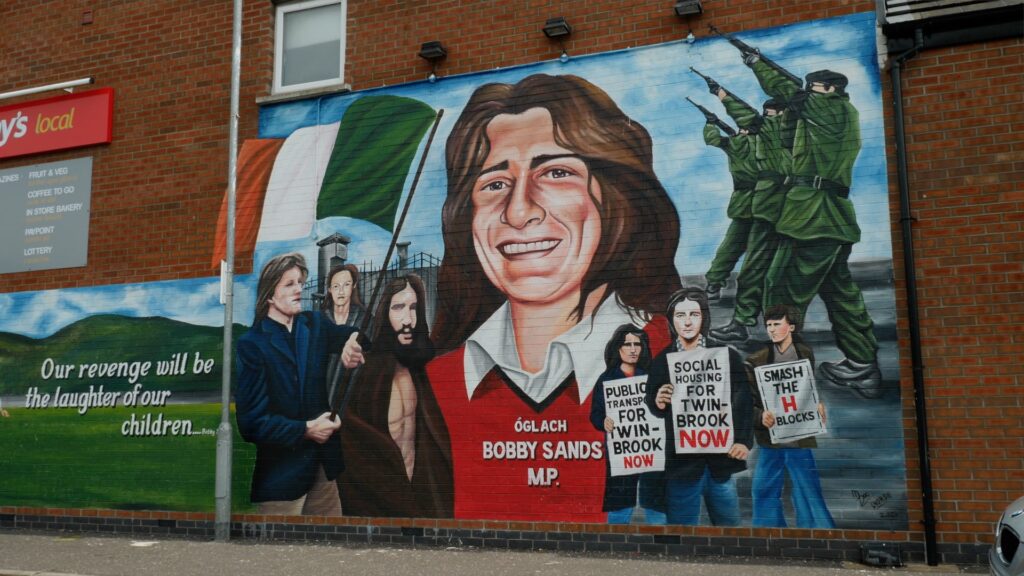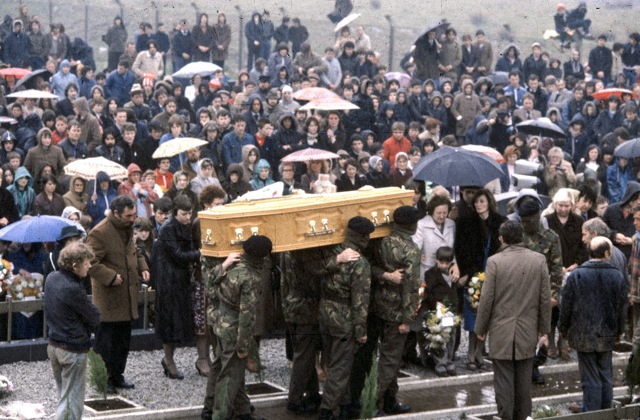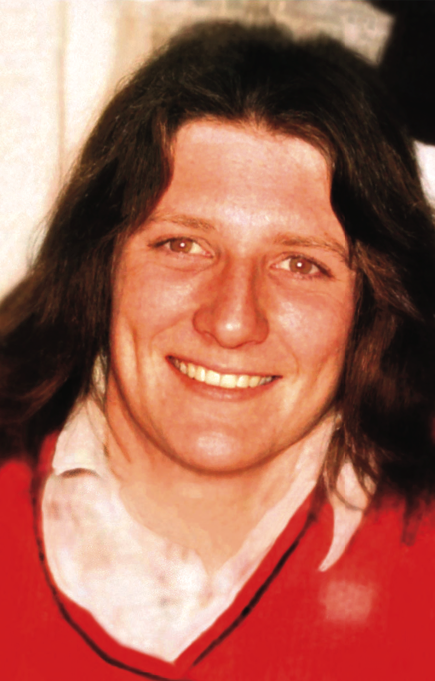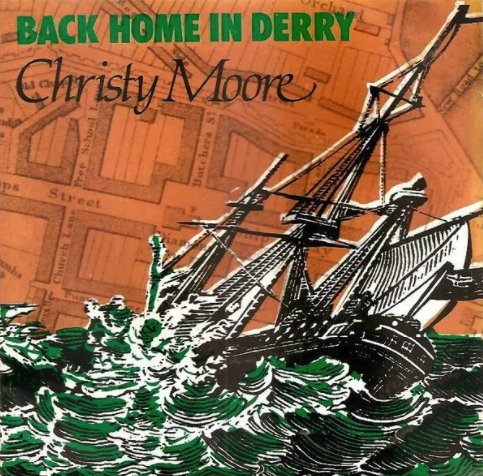Bobby Sands
A history of an influential Irishman

Bobby Sands - MP, blanket man and hunger-striker
Bobby Sands was born in North Belfast in 1954, the eldest of four children, to John, a postal worker, and his wife, Rosaleen.
Initially living in Newtownabbey, the family relocated to religiously mixed Rathcoole due to sectarian harassment.
With the outbreak of the Troubles in 1969, Belfast was to experience the biggest population movement in Western Europe since the Second World War as some 60,000-100,000 people – the majority of them Catholic – fled their homes in face of violence and intimidation.
The young Bobby Sands experienced sectarian threats at work and was forced to leave his first job in a coachbuilding firm.
In 1972, as community tensions escalated, the Sands family were forced to move into the mainly Catholic Twinbrook estate on the fringes of West Belfast. In that year alone, 400 people – many innocent civilians from both communities – died in the conflict involving the IRA, British Army and Royal Ulster Constabulary (RUC) and loyalist paramilitaries. Hundreds of Republican suspects were interned without trial.
IRA and community activity
It was at this point that Bobby Sands joined the Provisional IRA.
In 1972 he was arrested and sentenced to five years for possession of weapons. He served his time in Long Kesh where he had political status/special category status which had been granted after a hunger strike in May 1972 and led to relative peace in the prison. In Long Kesh he learnt to speak Irish, joined political discussion groups and learnt how to play the guitar.
After his release in 1976 he lived in a flat in Twinbrook with his wife Geraldine and infant son Gerard. Bobby combined his IRA involvement with his role as a community activist. Locals recall how he was responsible for ensuring that the remotely isolated Twinbrook estate was served by a black taxi service. He also produced a community newsletter, Liberty. Within months, however, Bobby Sands was again arrested with six comrades after an IRA bombing. This time he was sentenced to 14 years’ imprisonment.
In 1976 the British government removed special category status from prisoners sentenced for scheduled offences such as possession of arms and explosives or carrying out armed attacks. When sentenced Bobby joined his comrades on ‘the blanket protest’ against what they saw as an attempt to ‘criminalise’ them.
Prison times and the hunger-strikes
By now Bobby Sands (using the pen name ‘Marcella’) was viewed as a republican thinker and propagandist. In late 1980, he was chosen to lead the IRA prisoners in the H-Blocks. Using a smuggled and secreted pen and writing on toilet paper he smuggled out many articles, stories, and poems, written in both Irish and English, for publication.
On March 1, 1981, following a failed hunger-strike, Bobby launched a second hunger strike in support of the prisoners’ ‘five demands’.
The young Colin man realised the supreme risk involved in his protest. An extract from Day 1 of his Hunger Strike diary reads:
‘May God have mercy on my soul… I believe and stand by the God-given right of the Irish nation to sovereign independence…’
(Extracted from Bobby Sands prison diary on day 1 of his hunger strike with kind permission from the Bobby Sands Trust ©)
Election, death and funeral

As his physical condition weakened, he was dramatically elected to Westminster in a by-election for the constituency of Fermanagh/South Tyrone on April 9, 1981, with 30,492 votes. However, the British Prime Minister, Margaret Thatcher refused any concessions to the prisoners.
A proud Republican, Bobby Sands died at 1.17am on Tuesday, 5 May 1981, on the 66th day of his fast, surrounded by his family in the prison hospital. His funeral took place from his Twinbrook home to St Luke’s Church on 7 May, and it is believed 100,000 people lined the streets of West Belfast in one of the largest funerals in Irish history. He is buried in Milltown Cemetery.
The hunger strike was finally resolved in October 1981, but not before nine of Bobby Sands’ comrades had also died. Over 60 people died on the streets as violence and community polarisation intensified.
The legacy of Bobby Sands

Today, in the wake of the Peace Process, Bobby Sands’ election was momentous, and the legacy of this local lad who made such a difference to the future generations will always be remembered fondly in this area.
Bobby Sands, MP, proud Republican, poet songwriter and hunger-striker, remains an iconic figure for Irish Republicans and a school and theatre in the Colin area are named after his evocative short story, ‘The Lark and the Freedom Fighter’. There is also a commemorative mural in Twinbrook.
Poetry and writings

During his time in prison, Bobby Sands MP wrote many short stories, poems and other writings, some of which have been used elsewhere.
The celebrated Irish folk singer Christy Moore recorded two of Bobby’s poems as songs, ‘McIlhatton’ & ‘Back Home In Derry’, which were released as a single and b-side (pictured above) and also appeared on the album ‘Ride On’.
From Back Home In Derry:
“Twenty years have gone by and I’ve ended my bond,
My comrades’ ghosts walk beside me.
Well a rebel I came and sure I’ll die the same,
On a cold winter’s night you will find me.”
